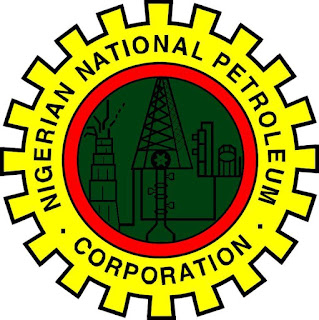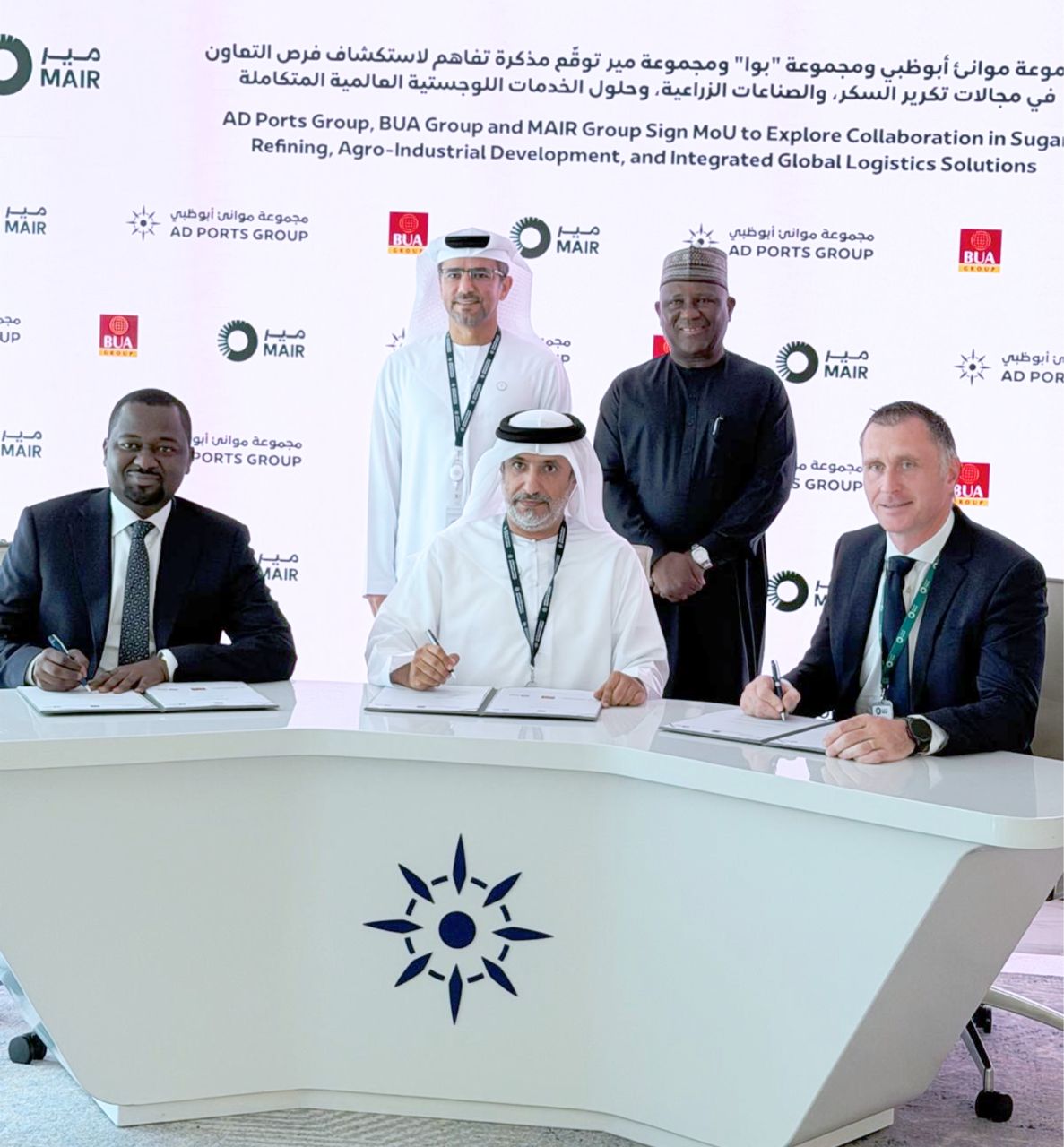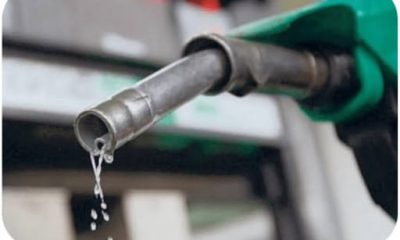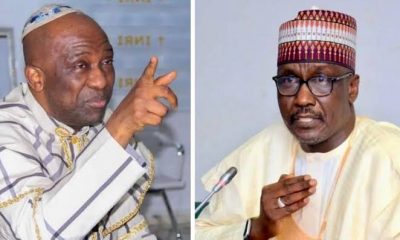Business
Corruption, Injustice, Unfairness have Eaten deep at NNPC -Staff

Corruption, Injustice, Unfairness have Eaten deep at NNPC -Staff
By Ifeoma Ikem
Some of the staff of the Nigerian National Petroleum Corporation (NNPC) says corruption, injustice and unfairness have taken deep at NNPC and are clearly exhibited on a daily basis.
Some of the anonymous staff who spoken to our reporter that an entity that is supposed to be responsible for harnessing Nigeria’s oil and gas reserves for sustainable national development has now banded as Northern Nigeria Petroleum Company.
They claimed that out of the eight members of the Senior Management Team, Six are Northerners, while there are only two members from the Southern Nigeria, One from South South and the other from the South West while there are no member from the South East, despite that the Board Chairman Mrs. Okadigbo and One Henry Obi who hailed from the South East are on the Board of the NNPC.
It revealed that Strategic Business Units (SBUS) are heavily manned by the Northerners for example TRADING, NAPIMS, NPDC, NRL and most of the assets (OMRS) in NPDC are managed by the Northerners.
They said that the corruption, injustice and unfairness are reeking up to high heavens as Nue Oil Energy Ltd a company registered on March 9th, 2022 with a share of One Million bought 100 percent shares in OVH Energy Marketing Ltd and ASPM Ltd from OVH Energy BV, a joint Venture between Vitol and Helios in September 2022.
They also added that although very painful, the acquisition cost was not stated in the filing at the Nigeria Stock Exchange (NSE).
The Staff of NNPC Ltd are largely pained that in the same September 2022 NNPC Ltd acquired the assets from Nue Oil a company with two Directors-Dagazau Mumuni, Chief Operating Officer, OVH and Shanono Sharif Zailani, River Brand Energy Ltd as stated in the Corporate Affairs Commission (CAC) document of the company (NUE OIL ENERGY) with reckless impunity.
The GECO had directed the management of OVH to take over the management of NNPC Retail Ltd while Dagazau Mumuni, COO, OVH and Director in the NUE OIL ENERGY was appointed as Special Adviser Downstream to the GECO, NNPC LTD when there is EVP, Downstream NNPC Ltd.
The GECO in the last one year has carried out illegal recruitment of staff into the NNPC LTD, while the NNPC Retail Ltd Staff have been excluded in the implementation of the PIA as it relates to transfer of staff to NNPC LTD as the GECO ensures that his cronies are appointed to be at the head of affairs at the Nigerian Upstream Petroleum Regulatory Commission (NUPRC) and the Midstream Downstream Petroleum Regulations Authority (NMDPRA).
The Staff of NNPC Ltd are not pleasant with the appointment of Mr. Huub Stokman, a white man as the Management Director (MD) NNPC Retail Ltd, whereas they are Nigerians with more cognate industry experience, competency and capacity in the Downstream Sector of the Nigerian Oil and Gas Industry.
Available information from the CAC on the NNPC Retail Status shows that Stokman is not a Director in NNPC Retail Ltd since he does not have a valid work permit from the Nigerian Immigration Services (NIS).
The Staff were disappointed that Stokman and his Management Team OVH in 2021 recorded a huge loss of over four billion naira only, with a 5% market share and expenses of over twenty-five (25) billion naira only for 2021-2022.
They noted however, that while the NNPC Ltd Staff in 2021 NNPC Retail netted a profit of over five billion naira only, a market share of 100 percent made a retained profit of over ten billion naira only and a support expense of less than five billion naira only for 2021-2022.
Meanwhile, the actions of Stokman has caused disaffection, disunity and demotivation of NNPC Retail Staff as a result of the imposition of his OVH Staff as management team on NNPC Retail Staff, despite the uncommon and immense contributions to the unimaginable growth and success of the company even with some NNPC Retail Ltd.
They also claimed that some of the staff with over 15 years Cognate Downstream Experience, Competency and Capacity before joining the NNPC Retail Ltd, very sadly have not been promoted since they were employed in NNPC Retail Ltd over ten years ago.
The staff are asking questions `WHO actually acquired WHAT? Did NNPC Ltd acquire NUE OIL ENERGY (OVH) or vice versa.
They, therefore. made a clarion call on the President of the Federal Republic of Nigeria, His Excellency Asiwaju Bola Ahmed Tinubu (GCFR) and his presidency to urgently salvage the National Oil Company from the hands of the heavily corrupt management overseeing the affairs of the NNPC Ltd and her subsidiaries.
They also request the powers that be, that they should be immediate investigations of NNPC Ltd and her subsidiaries in areas of fronter exploration activities, DSD/PPSA/under recovery etc.
Other areas are Non-functionality of NNPC refineries (turn around maintenance-tam funding), daily PMS consumption, perianal fuel scarcity from February 2022 to May 2023, white product allocation and distribution by NNPC-PPMC, trading and NRL from 2019-date.
Also, in allocation of Ojo Domestic LPC scheme (EXONMEBIL), alleged theft of 80% of crude oil production in Nigeria, Ownership, management and functionality of the OMLS under NNPC ltd, 20% NNPC ltd investment in the Dangote Refinery, NUE oil energy acquisition etc
Bank
Alpha Morgan to Host 19th Economic Review Webinar

Alpha Morgan to Host 19th Economic Review Webinar
In an economy shaped by constant shifts, the edge often belongs to those with the right information.
On Wednesday, February 25, 2026, Alpha Morgan Bank will host the 19th edition of its Economic Review Webinar, a high-level thought leadership session designed to equip businesses, investors, and individuals with timely financial and economic insight.
The session, which will hold live on Zoom at 10:00am WAT and will feature economist Bismarck Rewane, who will examine the key signals influencing Nigeria’s economic direction in 2026, including policy trends, market movements, and global developments shaping the local landscape.
With a consistent track record of delivering clarity in uncertain times, the Alpha Morgan Economic Review continues to provide practical context for decision-making in a dynamic environment.
Registration for the 19th Alpha Morgan Economic Review is free and can be completed via https://bit.ly/registeramerseries19
It is a bi-monthly platform that is open to the public and is held virtually.
Visit www.alphamorganbank to know more.
Business
GTBank Launches Quick Airtime Loan at 2.95%

GTBank Launches Quick Airtime Loan at 2.95%
Guaranty Trust Bank Ltd (GTBank), the flagship banking franchise of GTCO Plc, Africa’s leading financial services group, today announced the launch of Quick Airtime Loan, an innovative digital solution that gives customers instant access to airtime when they run out of call credit and have limited funds in their bank accounts, ensuring customers can stay connected when it matters most.
In today’s always-on world, running out of airtime is more than a minor inconvenience. It can mean missed opportunities, disrupted plans, and lost connections, often at the very moment when funds are tight, and options are limited. Quick Airtime Loan was created to solve this problem, offering customers instant access to airtime on credit, directly from their bank. With Quick Airtime Loan, eligible GTBank customers can access from ₦100 and up to ₦10,000 by dialing *737*90#. Available across all major mobile networks in Nigeria, the service will soon expand to include data loans, further strengthening its proposition as a reliable on-demand platform.
For years, the airtime credit market has been dominated by Telcos, where charges for this service are at 15%. GTBank is now changing the narrative by offering a customer-centric, bank-led digital alternative priced at 2.95%. Built on transparency, convenience and affordability, Quick Airtime Loan has the potential to broaden access to airtime, deliver meaningful cost savings for millions of Nigerians, and redefine how financial services show up in everyday life, not just in banking moments.
Commenting on the product launch, Miriam Olusanya, Managing Director of Guaranty Trust Bank Ltd, said: “Quick Airtime Loan reflects GTBank’s continued focus on delivering digital solutions that are relevant, accessible, and built around real customer needs. The solution underscores the power of a connected financial ecosystem, combining GTBank’s digital reach and lending expertise with the capabilities of HabariPay to deliver a smooth, end-to-end experience. By leveraging unique strengths across the Group, we are able to accelerate innovation, strengthen execution, and deliver a more integrated customer experience across all our service channels.”
Importantly, Quick Airtime Loan highlights GTCO’s evolution as a fully diversified financial services group. Leveraging HabariPay’s Squad, the solution reinforces the Group’s ecosystem proposition by bringing together banking, payment technology, and digital channels to deliver intuitive, one-stop experiences for customers.
With this new product launch, Guaranty Trust Bank is extending its legacy of pioneering digital-first solutions that have redefined customer access to financial services across the industry, building on the proven strength of its widely adopted QuickCredit offering and the convenience of the Bank’s iconic *737# USSD Banking platform.
About Guaranty Trust Bank
Guaranty Trust Bank (GTBank) is the flagship banking franchise of GTCO Plc, a leading financial services group with a strong presence across Africa and the United Kingdom. The Bank is widely recognized for its leadership in digital banking, customer experience, and innovative financial solutions that deliver value to individuals, businesses, and communities.
About HabariPay
HabariPay is the payments fintech subsidiary of GTCO Plc, focused on enabling fast, secure, and accessible digital payments for individuals and businesses. By integrating payments and digital technology, HabariPay supports innovative services that make everyday financial interactions simpler and more seamless.
Enquiries:
GTCO
Group Corporate Communication
[email protected]
+234-1-2715227
www.gtcoplc.com
Business
BUA Group, AD Ports Group and MAIR Group Launch Strategic Plan for World-Class Sugar and Agro-Logistics Hub at Khalifa Port

BUA Group, AD Ports Group and MAIR Group Sign MoU to Explore Collaboration in Sugar Refining, Agro-Industrial Development, and Integrated Global Logistics Solutions
Abu Dhabi, UAE – Monday, 16th February 2026
BUA Group, AD Ports Group, and MAIR Group of Abu Dhabi today signed a strategic Memorandum of Understanding (MoU) to explore collaboration in sugar refining, agro-industrial development, and integrated global logistics solutions. The partnership aims to create a world-class platform that strengthens regional food security, supports industrial diversification, and reinforces Abu Dhabi’s position as a hub for trade and manufacturing.
The proposed collaboration will leverage BUA Group’s industrial and logistics expertise, Khalifa Port’s world-class infrastructure, and AD Ports Group’s operational experience. The initiative aligns with the objectives of the UAE Food Security Strategy 2051, which seeks to position the UAE as a global leader in sustainable food production and resilient supply chains. It also aligns with Nigeria’s food production- and export-oriented agricultural transformation agenda, focused on scaling domestic capacity, strengthening value addition, improving post-harvest logistics, and unlocking new markets for Nigerian produce across the Middle East, Asia, and beyond.

Photo Caption: L-R: Kabiru Rabiu, Group Executive Director, BUA Group; Cpt. Mohammed J. Al Shamisi, MD/Group CEO, AD Ports Group; Saif Al Mazrouei, CEO (Ports Cluster) AD Ports Group; Abdul Samad Rabiu, Founder/Executive Chairman, BUA Group; and Steve Green, Group CFO, MAIR Group
Through structured aggregation, processing, storage, and maritime export channels, the partnership is designed to reduce supply chain inefficiencies, enhance traceability and quality standards, and also create a predictable trade corridor between West Africa and the Gulf.
BUA Group—recognised as one of Africa’s largest and most diversified conglomerates, with major investments across sugar refining, food production, flour milling, cement manufacturing, and infrastructure- brings extensive industrial expertise and large-scale operational capability to the venture. MAIR Group will provide strategic support in developing integrated logistics and agro-industrial solutions, creating a seamless platform for production, storage, and distribution.
Abdul Samad Rabiu, Founder and Chairman of BUA Group, said:
“This MoU marks an important milestone in BUA’s international expansion and reflects our long-term vision of building globally competitive industrial platforms. Together with AD Ports Group and MAIR Group, we aim to develop sustainable food production and logistics solutions that strengthen regional supply chains and support the UAE’s Food Security Strategy 2051.”
He further added that, “This partnership represents not just a commercial arrangement but a strategic food corridor anchored on shared economic ambition, resilient infrastructure, and disciplined execution, reinforcing long-term food security objectives for both nations.”
A representative of MAIR Group added:
“This collaboration underscores our commitment to advancing strategic industries in Abu Dhabi and building integrated solutions that reinforce the UAE’s position as a global hub for trade, food security, and industrial excellence.”
A spokesperson from AD Ports Group commented:
“Our partnership with BUA Group and MAIR Group highlights Khalifa Port’s role as a catalyst for high-impact industrial investments. This initiative will enhance regional food security, strengthen global trade connectivity, and support Abu Dhabi’s economic diversification goals.”
This MoU marks a historic collaboration that combines world-class infrastructure, industrial expertise, and strategic vision, setting the stage for a sustainable and resilient food and logistics ecosystem that will benefit the UAE, the region, and global markets alike.
-

 celebrity radar - gossips6 months ago
celebrity radar - gossips6 months agoWhy Babangida’s Hilltop Home Became Nigeria’s Political “Mecca”
-

 society6 months ago
society6 months agoPower is a Loan, Not a Possession: The Sacred Duty of Planting People
-

 news6 months ago
news6 months agoTHE APPOINTMENT OF WASIU AYINDE BY THE FEDERAL GOVERNMENT AS AN AMBASSADOR SOUNDS EMBARRASSING
-

 society5 months ago
society5 months agoReligion: Africa’s Oldest Weapon of Enslavement and the Forgotten Truth









